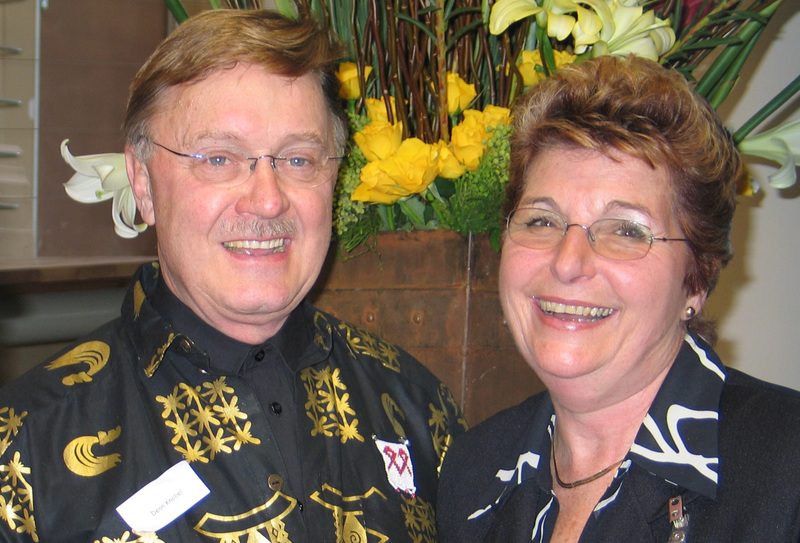‘Forensic giant’ Knobel dies
06 March 2019 | Story Supplied. Photo UCT Archives. Read time 4 min.
Renowned forensic pathologist Professor Deon Knobel, who retired in 2004 as head of the University of Cape Town’s Division of Forensic Medicine, died on 1 March following a short illness.
Lauded on his Facebook page as a “forensic giant”, Knobel (79) spent nearly four decades at UCT, during which time he estimated that he worked on more than 15 000 cases. But his expertise extended well beyond the university, with Knobel a regular specialist witness in high-profile court cases, even after his retirement.
The Stellenbosch medical graduate joined the State Pathology Laboratory, then based at UCT’s Hiddingh campus, in 1964. He was juggling two careers at the time: government medical officer during the day, and promising opera and Lieder singer at night.
After eventually foregoing the latter as the demands of his day job began encroaching on his evenings, Knobel spent the years right up to his retirement being involved with medico-legal autopsies as the UCT division has ties with the provincial Department of Health.
Among the cases in which he either gave evidence or assisted the prosecutors was the murder of Marike de Klerk, former wife of FW de Klerk, in her Bloubergstrand home in 2001. More recently he attended the trials following the murders of Susan Rohde, Hannah Cornelius and Inge Lotz.
HIV/AIDS activist
Knobel was also known as a committed fighter for the rights of people living with HIV and AIDS in the early days of the pandemic. He also had an indirect hand in UCT’s HIV/AIDS policy when he and Professor Gordon Isaacs, formerly of the UCT Department of Social Development, vocally and successfully opposed a draft document that called for testing of new students and staff before admission or appointment.
He was a lecturer of note, his love for his subject earning him a Distinguished Teacher’s Award in 2000 (one colleague believed he should have received one every year). On Knobel’s retirement, former Dean of the Faculty of Health Sciences Professor Nicky Padayachee, himself a UCT alumnus, fondly recalled Knobel’s lectures.
“Deon was probably the most memorable lecturer I ever had. I will never forget his style of teaching, his sense of humour,” he said at the time.
“With him it is everything or nothing, and it is usually everything.”
Fellow pathologist Dr Denise Lourens said Knobel was passionate about his job: “With him it is everything or nothing, and it is usually everything.”
Thomas Mollett, the amateur investigator who probed the Lotz murder case, wrote on Knobel’s Facebook page that he was “a man with flair, a wonderful person … he was a forensic giant, and a voice of reason and justice”.
Knobel, the author of numerous scientific articles and whose three volumes of student manuals became sought after in the fields of forensic medicine, medical ethics and HIV/AIDS, took on the “resurrection” of the literary heritage of his brother Wilhelm Knobel following his retirement.
He formed his own publishing company, Bel Monte, and the work on his brother’s oeuvre is continuing.
His words to his colleagues and students on his retirement bear repeating: “Yes, life is a journey. Enjoy the ride, even, or especially, the steepest speed bumps. Open the iron cage, let the hummingbird of your soul fly free and sing, with passion, your own unique song of joie de vivre.”
Knobel’s life partner of 39 years, Dr Roy Allan, died during the De Klerk murder trial in 2002.
 This work is licensed under a Creative Commons Attribution-NoDerivatives 4.0 International License.
This work is licensed under a Creative Commons Attribution-NoDerivatives 4.0 International License.
Please view the republishing articles page for more information.










